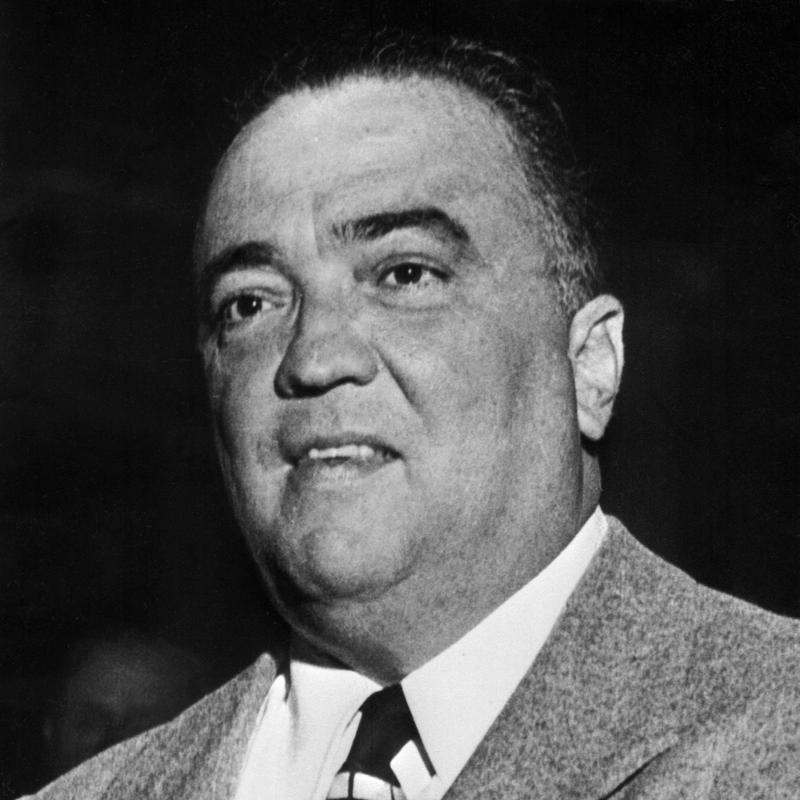BROOKE GLADSTONE: In a recent article for Foreign Policy, reporter John Hudson noted a quiet substitution in the FBI's fact sheet. Its primary mission had been changed from “law enforcement” to “national security.” He was alerted to the switch by national security lawyer Kel McClanahan, who said, quote, “I think they’re trying to rebrand. So many good things happen to your agency when you tie it to national security.”
Former New York Times intelligence reporter Tim Weiner and author of Enemies: A History of the FBI, says that this change reflects what really has always been the case.
TIM WEINER: Well, this is like the National Weather Service putting out a bulletin saying that the sun will rise in the East tomorrow.
[BROOKE LAUGHS]
The fact is that throughout almost all of its 105-year history the FBI's primary mission has been intelligence and national security. Do you really think J. Edgar Hoover was interested in bank robbers and car thieves? He was really interested in Communists and terrorists.
BROOKE GLADSTONE: Mm-hmm.
TIM WEINER: The reason that we associate the FBI and J Edgar Hoover and its legacy with “Don’t shoot, G-man” is that back in the 1930s, in the depths of the Depression, there was, indeed, a crime wave and there was a government war on crime. This was run by Franklin Delano Roosevelt's attorney general, Homer Cummings, but he could not be the face of the war on crime because he looked like a librarian.
{BROOKE LAUGHS]
J. Edgar Hoover, on the other hand, looked like a bulldog.
[OVERLAPPING VOICES]
BROOKE GLADSTONE: Looked like a bulldog!
TIM WEINER: Yes, he did!
[BROOKE LAUGHS]
A bulldog with a Tommy gun.
BROOKE GLADSTONE: And so, he –
TIM WEINER: Became the face of the war on crime. But this interested him not a wit. Communists, terrorists, anarchists, people who threatened the United States’ national security were his first, second, third, fourth, fifth, and sixth priority. And, aside from an interregnum, which coincides almost exactly with the Bill Clinton administration, national security intelligence has been job one at the FBI.
BROOKE GLADSTONE: Okay, so if this is an acknowledgment of what has been the longstanding reality of the FBI's priorities, why is it rebranding itself, if that's what it's doing, now?
TIM WEINER: The FBI has a new leader. His name is Jim Comey. He was the deputy attorney general and the acting attorney general during a period of great crisis in this country, back in March of 2004. The President of the United States had sent two of his White House aides to the bedside of the attorney general, John Ashcroft –
BROOKE GLADSTONE: Mm-hmm.
TIM WEINER: - who was near death, and tried to get him to re-sign a presidential order, which we now know involved illegal and extra-constitutional spying by the National Security Agency. Jim Comey, who was the acting attorney general, stood in the path of that speeding freight train and stopped it. Comey developed a reputation in the intelligence community as the guy who would say no, as opposed to the man would say yes, sir. He needs to reestablish himself as the new head of the FBI and reassert his primacy in the field of national security.
The other intelligence services, the National Security Agency, the CIA, they have no police powers. If they did, this would not be the United States; it would be Soviet Russia, where your foreign intelligence services has internal police power. The Bureau is the ultimate recipient of the intelligence that the NSA –
BROOKE GLADSTONE: Mm-hmm.
TIM WEINER: - and the CIA collect. And they need to be regarded within the government and by the American people as a national security agency. It is a recognition of a reality that few Americans grasp.
BROOKE GLADSTONE: One that the FBI would like us to grasp and like the media to play up.
TIM WEINER: Certainly that, but something more. The more people understand that what they do involves primarily secret intelligence operations and that they are, indeed, a law enforcement agency, as well, may help people understand that the calibration of the balance between freedom and security rests in part with the FBI, the enormous power to destroy people and the enormous responsibility to protect the Constitution and our civil liberties.
BROOKE GLADSTONE: Can you imagine what would happen if those powers were actually turned to the people who destroyed our economy?
TIM WEINER: It would be a bloodbath on Wall Street.
BROOKE GLADSTONE: John Hudson pointed out that there has been a steep decline in the prosecution of white-collar crimes. Back in 2000, he reports the FBI sent prosecutors 10,000 cases. That fell to 3,500 in 2005. If the FBI isn't doing law enforcement, then who is?
TIM WEINER: The Bureau ultimately has to investigate, prosecute and convict white-collar criminals. And if 90 percent of your agents are out chasing guys name Mohammed, then they’re not chasing guys named Thatcher Baxter Hatcher.
BROOKE GLADSTONE: Well, [LAUGHS] but Tim, that's exactly my question. If they’re not, who is?
TIM WEINER: Nobody.
BROOKE GLADSTONE: Okay.
TIM WEINER: If Congress in its wisdom, and perhaps freed from the considerable financial contributions of the banking community, saw fit to create a federal Bureau of Financial Investigation, [LAUGHS] then we might get somewhere. But it’s very hard to do one thing well, at once. It's very, very hard to do two things well, at once. And the Bureau was called upon to protect and defend the national security of the United States against all enemies, foreign and domestic. And the enemies list at that time did not include Goldman Sachs, Lehman Brothers and others whose names I’m too polite to mention at this moment.
BROOKE GLADSTONE: Tim, thank you very much.
TIM WEINER: All right, thanks.
BROOKE GLADSTONE: Former New York Times reporter Tim Weiner is author of Enemies: A History of the FBI and Legacy of Ashes: The History of the CIA.
